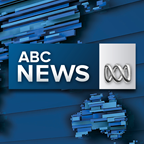
Posted
 Photo:
Young people from diverse backgrounds are expressing themselves through spoken word. (ABC News: Sarah Collard)
Photo:
Young people from diverse backgrounds are expressing themselves through spoken word. (ABC News: Sarah Collard)
It all started as a way of bringing young Sikhs and Muslims together to overcome historical tensions — but is now attracting an even more diverse group of people.
Common Ground is a multilingual, multi-faith workshop series that uses poetry and the spoken word to break down stereotypes and fight discrimination.
Abdul Hammoud founded the program in Melbourne five years ago and has teamed up with Perth-born spoken word poet Sukhjit Kaur Khalsa for the workshops which are being held in Perth for the first time.
"I started thinking if wouldn't it be cool to bring it to my hometown [and] I feel like this is the right time," Ms Kaur Khalsa said.
"Spoken word is growing and we need to diversify the scene. Perth has always been diverse but I think visibility has always been really underground."
One of the things that drew her to spoken word poetry was that anyone could do it.
"I didn't have the skills of a singer. I didn't have the skills of a lawyer. I thought well I talk a lot why not spoken word — it's a good way to articulate uncomfortable conversations," she said.
Mr Hammoud said in the social and political current climate, bringing people together was essential.
"I think we are trying to show how easy it is to sit down with someone who may have completely different views or even opposing views to you and still find so much in common," he said.
"I think that is the first step in that very elusive goal of world peace."
Iffrah Malik, a 22-year-old student from Pakistan moved to Perth last year, initially found the experience of spoken word poetry confronting.
"To be honest it has been a bit scary but it has also been really enriching. You are giving so much of yourself," she said.
Ms Malik said she wanted to express her experiences of being a recent migrant.
"A lot of times people are under the impression that if you come from a developing country, and you come to a developed country that it is the best thing that could ever happen to you , but they don't realise that you're leaving behind a lot of things which are important to you," she said.
Ms Malik said while she had not experienced overt racism, she had encountered a lot of misconceptions.
"Pakistan is predominantly a Muslim country and I am Muslim myself — people have a lot of stereotypes about that and our culture," she said.
Ms Malik said she did not know much about Australia before moving to the country with her family.
"The only thing I knew about Australia was what I saw on TV or on the internet so I didn't really know what sort of people Australians were," she said.
You see people of all colours, of all religions, of all sexual orientations and it's enriching realising that you are not the only one who looks different."
Patch Miller has a Sri Lankan and English background.
"Being bi-racial there's not much representation out there, with stories like mine," he said.
"I don't often feel like I belong in Australian spaces or multicultural spaces either. In my poem I am exploring how there has been a big imbalance between my two cultural identities."
Mr Miller said he was not brought up around his Sinhalese culture and language.
"I wasn't brought up speaking it, and was not brought up being proud of my heritage and [there's] also the fact that I am gender-diverse.
That is a big taboo thing Sri Lanka, homosexuality is punishable by death there," he said.
"My family don't even know about my transition because it would be a big shame on my mother. It feels really isolating, that there are family who don't know my name — that I am living my life as a man."
 Photo:
Patch Miller says the program has allowed him to explore all sides of his life. (ABC News: Sarah Collard)
Photo:
Patch Miller says the program has allowed him to explore all sides of his life. (ABC News: Sarah Collard)
Mr Miller said the program had allowed him to explore all sides of his life.
"In queer spaces I am not really given the space to talk about that tension and that experience of being culturally diverse … it's a lot harder to feel like I belong somewhere," he said.
"I think that it has been good to come to Common Ground and meet people who are wanting to write things about their cultural identity and their background.
"I might not have the same experiences as other people in the room but there is a lot of similarities. We are all confronting this divide where we might not feel accepted."
Topics: performance-art, poetry, community-and-society, community-education, perth-6000









 Add Category
Add Category
